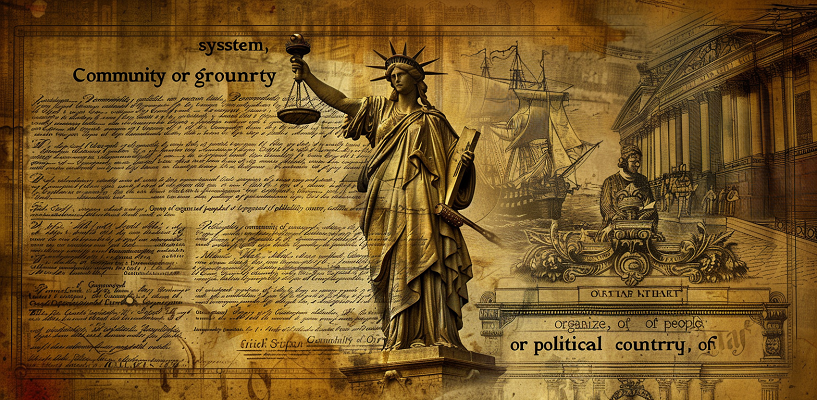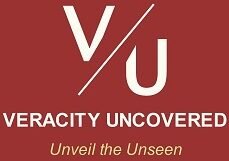- Home
- >>
- US
- >>
- Politics
- >>
- Government
- >>
- Government is
Government is

A government is in charge of “establishing and upholding” social norms as well as matters of defense, international relations, the economy, public services, and other areas. The national government is in charge of formulating and carrying out national policies.
A democratic system of government is one in which the people themselves hold ultimate authority, which they may exercise either directly or “indirectly through a representational system” that often includes regular free elections. In a republican system of government, direct or indirect elections are used to select the President, who acts as the head of state/nation.
A powerful government is that one in which every citizen considers himself be part of it. Within governance, the government is one of the players. Within governance, the government is one of the actors. The government is an example for workplace “accessibility, equity, diversity, and inclusion”.
The central government is a kind of federal government in some countries. The federal government is also reported by several “regional governments” (such as state or local governments) under a federal system/country. There is a division of powers between the central (federal) government and various “regional governments”.
The U.S. federal government is paying interest for using the funds of lenders, much similar lenders charge when they grant a “car loan or mortgage” to an individual — as stated over “fiscaldata.treasury.gov/americas-finance-guide/national-debt”.
The object of government is not to change men from rational beings into puppets, but to enable them to develop their “minds and bodies” in security, and to “employ their reason unshackled”. The true aim of the government is liberty — Benedict Spinoza. Book — The Maccordion Format by William Regan.
The discipline of social science that focuses on politics and government is known as “political science”. The government is the structure that makes decisions. There are many different types of governments, that vary from “autocracies to democracies”.
The government is us; we are the government, you and I — Theodore Roosevelt.
Government is affected by politics, and government acts frequently reflect the state of politics. Government is distinguished from “politics”, which is defined as a public activity that occurs within or outside of a “polity”, within a society, or between societies. Physically visible government is a practical entity.
Government is not reason; it is not eloquence – it is force! Like fire it is “a dangerous servant and a fearful master”; never for a moment should it be left to irresponsible action — George Washington.
Government is impacted by the behavior of both “individuals and groups” when it comes to public affairs. In particular, the government is thought to be responsible for creating “social and economic” policies that satisfy the demands of more intricate and politically refined communities.
Government is a contrivance of human wisdom to provide for human wants. People have the right to expect that these wants will be provided for by this wisdom — Jimmy Carter. Ref. – “brainyquote.com/quotes/jimmy_carter_134265”.
The government is responsible for overseeing the day-to-day working of administration of the nation. No government official may exercise their authority unless specifically authorized by “the Constitution or by public law”. The government is made up of laws. Everyone must obey the law.
History, in general, only informs us of what “bad government is” — Thomas Jefferson.
The power to operate the “executive, legislative, and judicial” branches of the federal government is granted to “the President, the Congress, and the Federal courts”, respectively, under the U.S. Constitution.
The chief duty of the government is to keep the peace and “stand out of the sunshine of the people” — James A. Garfield.
The federal government is a vast provider of services. Every year, nearly 400 million people — individuals, families, companies, organizations, and local governments — receive information and services from over 430 “federal agencies and sub-units”.
Which government is the best? The one that teaches us “to govern ourselves” — Johann Wolfgang von Goethe.
The Federal Government is the country’s biggest employer and the country’s largest owner of real estate. Openly accessible data of the US government is a valuable national asset that supports “innovation, entrepreneurship, scientific advancement, and other public advantages”.
A government is accountable to its citizens if it is open to the public and subject to their will.
With its extensive resources and reach, the U.S. Government is a reliable source of data, modeling, and climate information.
The federal government is the biggest energy consumer in the U.S., using more than 600,000 cars and 300,000 buildings.
Government is not the generator of “economic growth”; working people are — Phil Gramm.
The only way to return to a more logical form of government is to make sure that the “property and rights” of other people are not violated by flimsy popular majorities.
Government is for the people -
This implies that the people you elect represent you, serve you, and “be aware of the requirements of the populace”. The main responsibility of the government is to safeguard the lives, property, and “rights of its citizens”.
The public must be fully aware of government operations if the government is to be genuinely “of, by, and for” the people.
The government must be available to all citizens, and it must be devoted to continuously improving by obtaining feedback and making changes if the government is to fulfill its mandate to be “of, by, and for” the people.
The government is a trust, and the persons who are elected to government office serve as its trustees, cooperating for “the good of the populace”. In addition, the government is in charge of maintaining a stable economy and organizing society.
The government is dedicated to the general advancement of all societal segments. A community government is one in which the authority to manage “local community issues” is delegated to corresponding social groupings.
The For the People Act of 2021 of the U.S., which was proposed as H.R. 1 in the 117th Congress of 2021–2022, addresses campaign funding, voter access, “election integrity and security”, and “ethics for the three arms of government”.
Government is concerned with -
The national/federal/center government is concerned with the broader subjects like “immigration, foreign commerce, war declaration, aviation administration, food and drug administration, lay and collect tax, defense management, imports and excises, coin money, environment protection, space exploration and research, constitution amendment, law creation, etc.”, that impact the entire nation.
The state government is concerned with issues like “establishment and management of hospital and school, state commerce, assistance to citizens with insurance, welfare, election conduction, establishment of local/county/municipal government, issue ‘licenses, permits and certificates’, maintain state militia, ratify constitution amendment, etc.”, that directly affect the state.
The “tax collection, interstate commerce, money borrow, make and enforce laws, courts establishment, build roads and transportation, charter banks and corporations, possession of private land for public use, national parks management, etc.” are examples of shared interests.
Local/municipal/county government is concerned with matters like “distribution of ‘gas, electricity and water’, garbage collection, maintenance of community roads and parks, management of ‘firefighters, ambulance and local police’, etc.”, which impact the daily lives of residents.
Government is responsible for -
In order to guarantee the safe production, processing, use, and disposal of a wide range of products, including “foods and consumer goods, chemicals used in industry, medical supplies, and pesticides“, the government is responsible for enforcing regulations and overseeing procedures.
Numerous programs, including “financial assistance, small company owner help, and childcare“, the government is responsible for funding.
The duty of protecting the nation from potential dangers, the government is responsible for.
The way most of the nation’s crucial data is “issued, handled, and stored”, the government is responsible for.
The government is responsible for promoting domestic manufacture.
The government is responsible for steps to guarantee that mining is conducted in a way that protects the environment and society throughout the whole mining lifespan, including revival and closure.
The executive branch of the government is in charge of “enforcement and execution” of a nation’s law. Among other things, the judicial branch of the government is in charge of interpreting the constitution.
Government is or are -
Depending on the place or country in which it is used, the word “government” can be followed by “is” or “are”. As a collective noun, “government” requires a single verb in American English.
The majority of collective nouns in American English are singular and have a singular verb. Most collective nouns in British English can be interpreted as either “singular or plural”. Either a singular or plural verb can be used with a collective noun.
Though “government” sounds plural since the government is a body of people, the word “government” might be singular because all people constitute one body.
That’s all friends.

